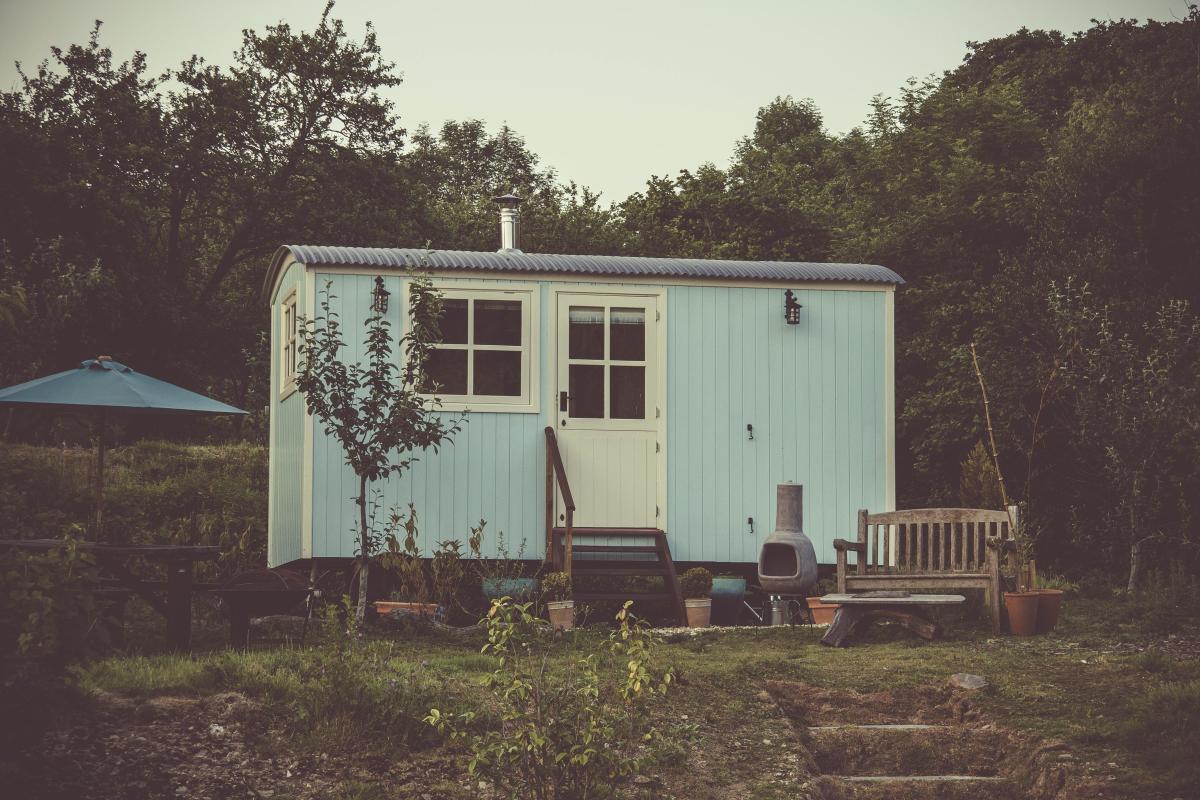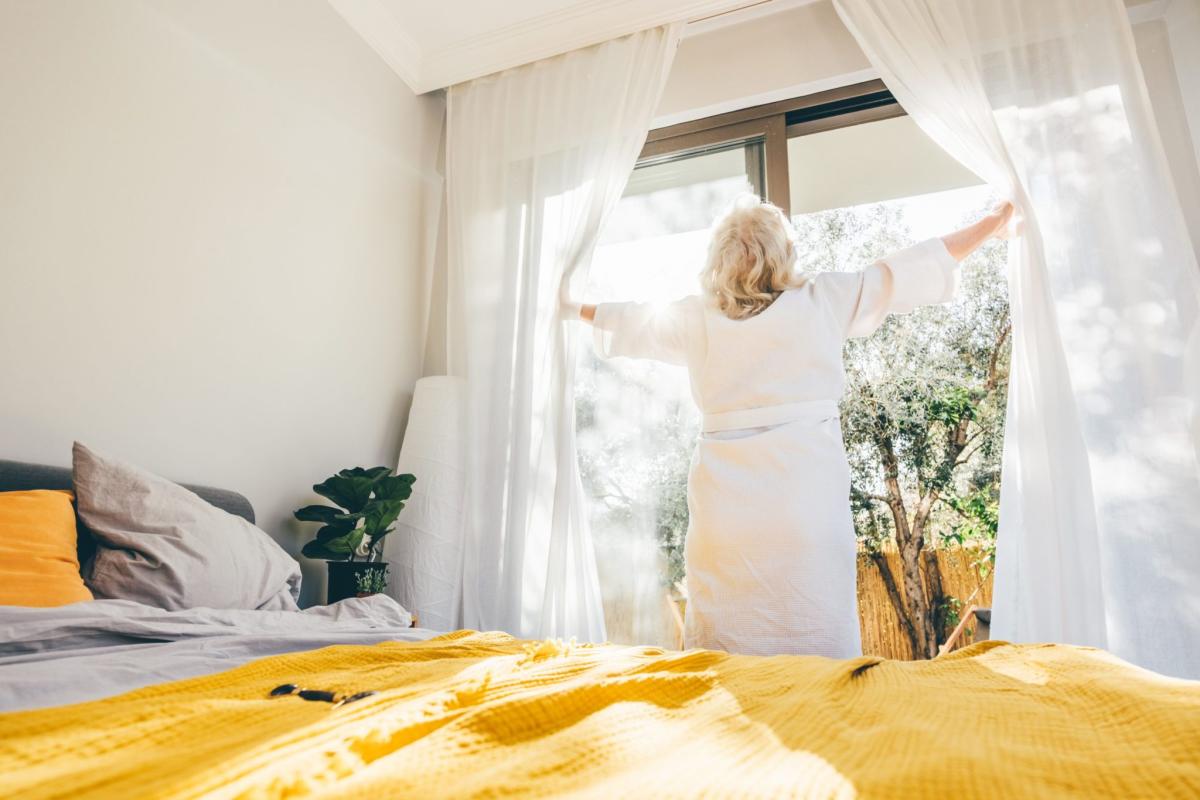On my porch were jagged wooden planks, weathered and splintered, eager to trip my guests. My interior floors creaked and groaned, as if I were complaining about their age. The roof was on its last legs. My air conditioner was blasting to keep the house cold during the sweltering summer heat.
Throughout the house, doors hung crooked, like crooked teeth in a tired, old smile. There were two separate and widespread rat plagues, one of which I solved with a brilliantly ferocious black cat. The other, with a few traps, but not before accidentally pinching my fingers, causing me to recite favorite words to the gods.
I lived in my house for thirteen years, even though it was slowly and steadily falling into disrepair. To be honest, the house probably scared off a few potential girlfriends. My current partner, Laura, later admitted, “Don’t be angry. But I almost didn’t make an appointment with you because of your house.’
Yes, I could have easily bought something bigger and nicer, but I enjoyed saving money and putting it into investments. My property taxes were a paltry sum that didn’t trigger silent tirades about the government as I walked the halls. My electric bill was three Netflix subscriptions and not a cent more.
In thirteen years, my neighborhood underwent radical changes. New mansions sprang up next to me, rising above the bulldozed remains of an earlier slum I worked with. Soon, and through rapid gentrification, my house lost its “friends” to play with.
A few middle-aged recently divorced people have added floors to houses and parked BMWs out front. Every modest house disappeared and then the strange atmosphere began: the long, pained stares of neighbors as they walked past with designer dogs that cost more than many people’s cars, the strangely voiced questions at neighborhood parties, “So…how long have you lived in that house?”
A change of direction
I was lying on the couch, relaxing, when I heard a knock on my door. There was an older couple standing there, smiling. The silver-haired husband was tall, with a large build and a confident appearance that gave the impression that he was some kind of executive (he was). His wife had defied her age, perhaps at the hand of a surgeon, perhaps not, I don’t judge.
They were my new neighbors, and nice ones too. We started talking and she gave chase: “Have you thought about selling your house?”
As strange as it seems, I had never thought about it. That was foolish considering that was me literal the only small house left.
‘I haven’t. But that’s certainly a good question,” I said, then narrowed my eyes and considered the possibilities.
“Have you thought about naming a price?” she asked.
I wasn’t prepared for her directness and said, “I didn’t do that.” I enjoy living here. But if I change my mind, I’ll be sure to let you know.” They looked disappointed. We talked some more and parted ways. I later heard from one of my many gossiping neighbors that the man had sold a company for millions of dollars and retired at age fifty. I suspected they wanted to expand their house into a compound on my property.
Two years later, my partner and I talked about moving in together. She made it clear from the start: “I can’t live in that house you’re in.”
I didn’t expect her to do that. So I started with the plan to build a new house with my savings. And I instructed that same couple to make a deal on the house.
They came over again and we had a similar conversation. She asked again, “Have you thought about a prize?”
And I did – and they agreed to pay.
I soon had the pleasure of watching our new townhome being built, a 2,700 square foot home that would sleep two people. It had a corner upstairs where I could write and look out the window at everything going on around me.
In the years since I moved here, I’ve reflected on the lives I’ve led in these two homes.
I certainly love this house: it is functionally perfect for us. But I can’t say I’m happier than before. There was a huge dopamine rush when I moved here and I was like, ‘Holy cow? This is my house?!”
But over time I returned to my mostly happy attitude, with the usual bad days in between. Today, when I look back on my life in my Status League neighborhood, I see so many unhappy people and so much competition for possessions and nice cars. Who has the most beautiful dog and whose child goes to the most elite school?
They have fallen into the trap of making social comparisons, which have been proven to cause increased anxiety and depression. Why? Because in the end there is always someone with a nicer car, a nicer house, a apparently more perfect family. Any thing you embed value into through contrast will inevitably be devalued through contrast.
Psychology professor Dr. Sonja Lyubomirsky had two groups of participants – lucky and unlucky – take part in a series of puzzles. At the end they were told that a colleague had solved the puzzles much faster and more accurately. The unhappy participants had many more negative mood swings after hearing from the better participant. The happier people responded with minimal mood change.
In short, the happy people gave minimal weight to social comparison information. The study found that recognizing the successes of others without jealousy while deriving little satisfaction from their downfalls is crucial to living a happy life.
Fortunately, and despite my other shortcomings, I have been able to largely avoid this social comparison problem. When I showed up at those rich people’s parties, the thicket in that ugly little house, I was blissfully ignorant of their status game, but still happier than most of them. Yet I knew how easy it was to get caught in that net.
In my early thirties, in the aftermath of my divorce, I found myself in a frantic rush to take every aspect of my life to the next level. I went to high school, started playing sports, working on my tan and buying nice clothes. Subconsciously, my entire identity was about raising my game with society and, in particular, with the opposite sex. While some of those changes were valuable, I eventually realized that I had lost the thread.
Comparing myself to others only led to disappointment and depression.
Abd Al Rahman III, the Caliph of Córdoba in 10th century Spain, had an incredible anecdote that summed up his fantastically wealthy life at the age of 70:
I have now reigned in victory or peace for more than 50 years; loved by my subjects, feared by my enemies and respected by my allies. Wealth and honor, power and pleasure have awaited my call. I have diligently counted the days of pure and sincere happiness that have fallen to my lot. They amount to 14.
There is no known object or amount of power that gives unlimited happiness. There is no triumph of riches that will bring lasting satisfaction. Beware of social comparisons and attempts to climb the wrong ladder in life.
I know full well that there are many places to find fulfillment, but comparing my possessions, family, and things to others is not one. Being ‘the poor kid’ in that neighborhood didn’t stop me from being happy.






